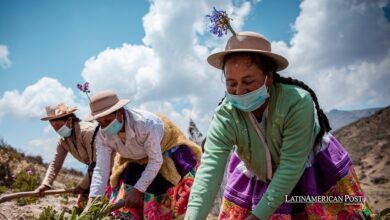Floods In Pakistan Is The World Prepared To Take On More Natural Disasters?
The UN calculates that 16,000 million dollars would be necessary for Pakistan to overcome the flood's impact that affected thousands of people. However, the international community only commits to 9,000 million dollars.

Photo: Pexels
LatinAmerican Post | Julián Andrés Pastrana Cuéllar
Listen to this article
Leer en español: Inundaciones en Pakistán ¿Está el mundo preparado para asumir más desastres naturales?
The effects unleashed by the floods in Pakistan in recent months remain dramatic. UNICEF estimates that around four million children in this Asian nation continue to see their lives and well-being threatened by living next to stagnant and polluted water due to flooding.
There is also evidence that in areas covered by water, there has been a marked increase in acute respiratory infections among children, considered one of the main causes of mortality in this segment of the population. For its part, between July and December 2022, the cases of severe malnutrition in infants doubled.
An Event To Find Solutions To The Tragedy That Is Mourning Pakistan
To find solutions to this serious crisis, Antonio Guterres, Secretary General of the United Nations, convened a high-level International Conference that is jointly organized by the United Nations Development Program (UNDP) and the Pakistani government. The event is taking place in Geneva, Switzerland, and pursues the purpose of gaining support from the international community for this Asian nation, which despite being one of the least polluting, is indeed suffering the rigors of the crisis climate.
Although Guterres estimates that at least 16 billion dollars will be required to solve the delicate situation in Pakistan, the delegates at the conference have barely promised aid in the order of 9 billion dollars.
We recommend you read: 2023: 65 million more people than in 2022 will need humanitarian aid
Pakistan, A Double Victim Of The Climate Crisis And A Broken International Financial System
On the other hand, the head of the UN has highlighted how this country has simultaneously suffered the ravages of climate change and also "a world financial system that is morally bankrupt." Guterres expands on this opinion, explaining how this system "systematically denies middle-income countries with the debt relief and favorable financing conditions necessary to invest in resilience against natural disasters." The solution to that would be for developing nations to explore innovative ways of raising " conditional financing ". favorable terms and debt reduction when they need it most .”
The Crucial Role Of Women
Finally, the Secretary General of the United Nations emphasized supporting women and children in the context of this catastrophe, considering that they are up to fourteen times more likely to die in this type of natural disaster compared to men. According to what this leader said, women have played a leading role in the tragedy in Pakistan, because their contributions have allowed and will allow an inclusive, egalitarian, and strong recovery in the future. Therefore, it is important to open spaces for them to exercise leadership and propose the necessary proposals to overcome the emergency.
The Debt Of Rich Countries With The Nations Most Affected By The Climate Crisis
Faced with this, the question arises as to whether international society is prepared to face natural disasters triggered by climate change. The answer for the UN itself seems to be no. In this regard, a report from the World Meteorological Organization (WMO) mentions that only half of the countries in the world have access to a multi-risk early warning system that allows them to prepare for events such as floods, storms, droughts, and heat waves that may occur. in isolation or even at the same time.
According to this UN agency, the poorest countries, such as some underdeveloped island states and African nations, are the most vulnerable to the effects of climate change. On this point, a 2021 ranking from the University of Notre Dame shows that the nations worst positioned in the face of climate chaos are Liberia, Somalia, Afghanistan, Niger, Sudan, the Democratic Republic of Congo, Guinea-Bissau, Eritrea, Central African Republic, and Chad. Countries that yes or yes would need the support of the most developed and at the same time more polluting countries. However, the question arises as to whether these developed nations are committed to mobilizing resources to alleviate a situation that, as evidenced in Pakistan, is increasingly worrisome.




